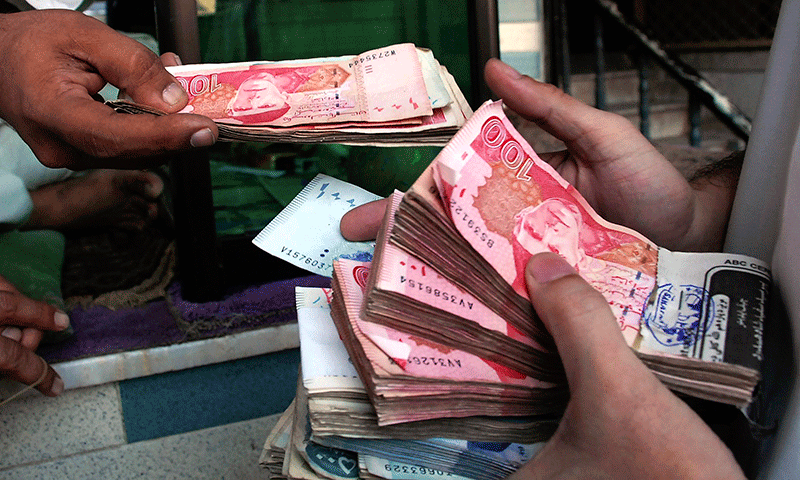
Q. Can blueberries be grown in Haripur and, if so, where to get seeds or plants?
A. Yes, they can, providing that they are planted in acidic soil. Check the excellent local nurseries in Haripur for pot-grown plants or search online for another source within the country.
Q. I have been watering my plants with kitchen and laundry leftovers as there is an acute shortage of water in our area of Karachi. I suspect that rotting roots and withering of seedlings, just after they develop true leaves, is the cost I am paying. I am utterly disappointed and need guidance to deter further losses.
All your gardening queries are answered here
A. Using grey water, as it is called, for plant irrigation does have guidelines which you may or may not be aware of. Top of the list is that the water does not contain any harsh chemicals such as those regularly found in normal laundry cleaners and in dish-washing liquids. It is important to use eco-friendly cleaning products only as these will not harm plants or soil. In addition, kitchen water should be free of any traces of cooking oil and should be strained through something such as very fine muslin to remove all food particles prior to use. If the water contains cooking oil, over time it forms a layer of ‘gunk’ on the soil surface, thus preventing oxygen from entering the soil, suffocating micro-organisms necessary for healthy soil and ultimately killing the plants.
If none of the above is the problem, then I suspect over-watering/lack of proper drainage in the seed trays or pots as this will cause roots to rot and seedlings to die. Following the proper procedure in grey water use is essential if plant and soil health is to be maintained. I hope this information helps resolve the issue.
Q. I am interested in growing blueberries and blackberries in Karachi. Is this possible and how shall I go about it?
A. Karachi climate is not suitable for the cultivation of either of these berries. Sorry.

Q. I am an enthusiastic but ignorant plant-lover and have a small garden in Islamabad. It has a thriving variety of evergreen bushes and trees planted in beds along the boundary walls, reaching up to 12 feet, but I have been defeated in trying to grow low shrubs/plants to cover the lower part of the walls which look bare and ugly. Except for about two hours, the walls are mostly in shade. I would be grateful for your suggestions.
A. There are many different varieties of ivy, some small-leafed, some with large leaves, some plain green-leafed, variegated, etc. Any of these will do the job, but will need regular pruning and training to limit them to the walls: they root themselves directly into the wall so do not require support. If you don’t fancy ivies, then climbing fig, climbing Asparagus plumosa or money plants can be used or any of the following, shade-loving plants should fit the bill: Eranthemum (available in various leaf colours), Panix, a variety of medium to tall ferns or even Zebrina (wandering jew) — although the leaves are liable to turn green instead of purple due to lack of sunlight.

Q. What is the Urdu or other local name for elderberries and where can I buy them? I have seen dried Zareshak berries in the market but do not know if they are elderberries or not.
A. Elderberry (botanical name Sambucus nigra) was probably introduced into Pakistan by the British and is often used as a ‘street shrub’ in Rawalpindi where, for various reasons, it doesn’t appear to do well. Presumably, young plants can be found in nurseries in the Rawalpindi area. Zareshak berries are gathered from Berberis vulgare, which grows wild in the Murree hills and throughout northern areas of the country. Zareshak is totally different to elderberries.

Q. What is the name of the creeper for walls that you mentioned in this column on March 31 please?
A. Please re-read the column as various creepers/climbers are named both for sunny and shaded areas.
Q. I planted a pomegranate plant a few months back in my Lahore garden. Since the start of this spring season, it was going very well with good growth. Unfortunately, since about a week I have observed that some of its new leaves have started to curl and their growth has almost stunted compared to the previous leaves. Furthermore, some kind of very small pests, surrounding the infected leaves and stems, have also appeared. Kindly recommend me some remedy to overcome this pest infestation issue.
A. Spray the plant, remembering to spray underneath the leaves as well as on top, very thoroughly with a 100 percent organic neem oil spray. The percentage of neem oil to water varies from manufacturer to manufacturer so please check the label for the correct mixing proportions. Spray just before sunset and repeat every three days until the pests have completely vanished.
Please continue sending your gardening queries to zahrahnasir@hotmail.com. Remember to include your location. The writer does not respond directly by email. Emails with attachments will not be opened.
Published in Dawn, EOS, April 28th, 2019












































